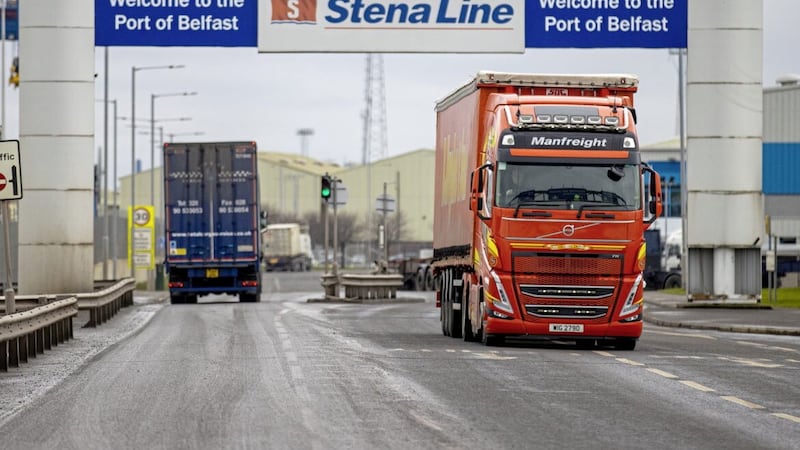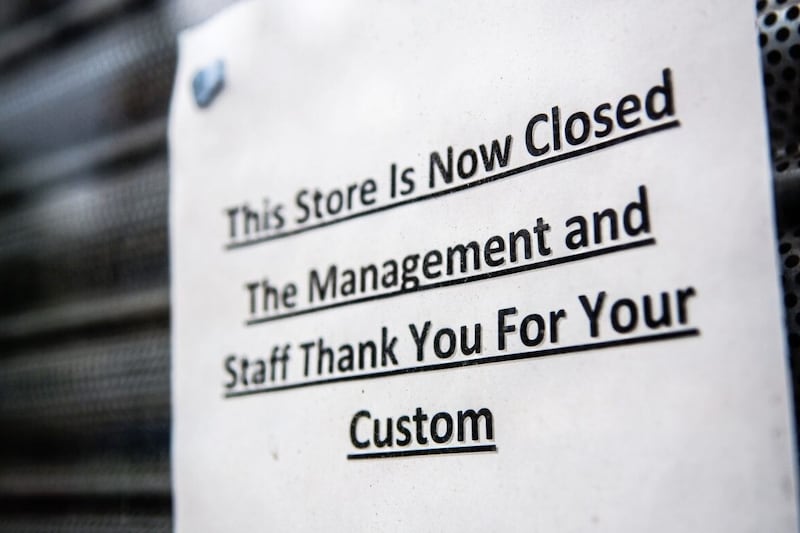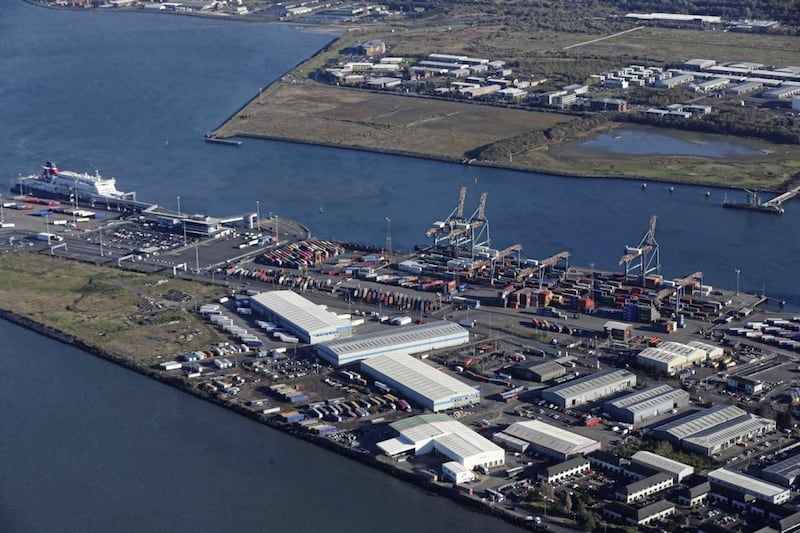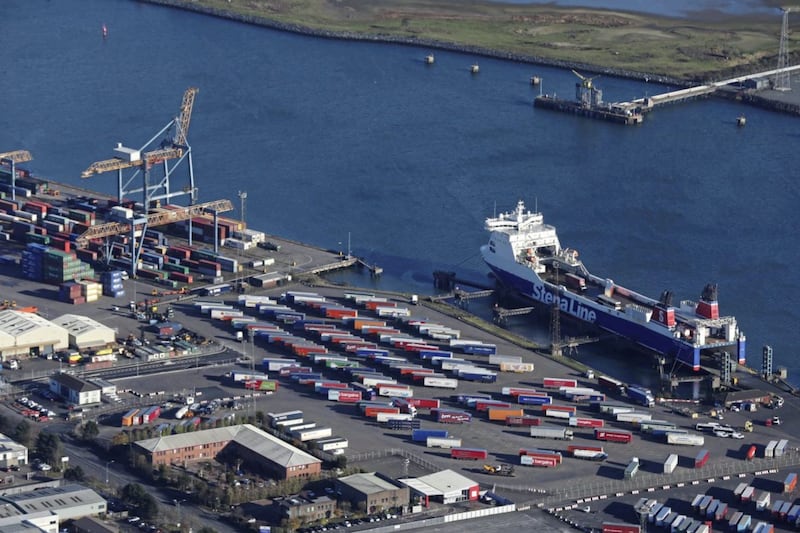BUSINESS groups in the north have offered a cautious welcome to the UK and EU’s announcement of new joint solutions on the Northern Ireland Protocol.
UK Prime Minister Rishi Sunak said the Windsor Framework marked a "decisive breakthrough" on a range of issues from supermarket goods and parcels to medicines and VAT, claiming that it removes “any sense of a border in the Irish Sea”.
The broad consensus from the Northern Ireland business community was the need to study the finer details contained within the hundreds of pages of documentation published on Monday evening.
The 29 pages of the Windsor Framework has been released alongside 15 legal texts and eight government explainers.
The initial response from the chief executive of Manufacturing NI, Stephen Kelly, said the deal “goes much, much further in terms of what many of us expected”.
But he still expected some sectors could be disappointed when the full legal texts are deciphered.
The executive director of the Northern Ireland Food and Drink Association, Michael Bell said a full analysis of the document will take time.
But he added: “On first reading the Windsor Framework looks substantial and balanced, and represents the kind of pragmatic, practical solutions that we have been urging.”
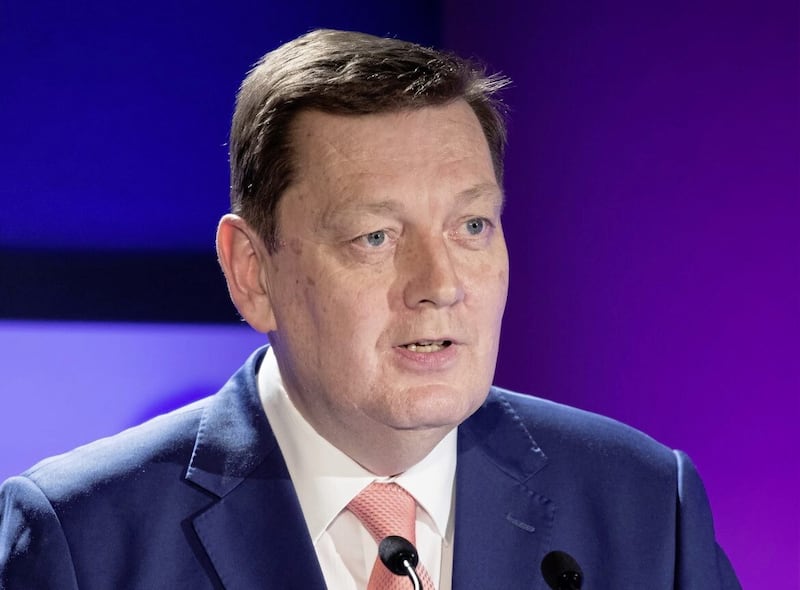
What they said:
Northern Ireland Business Brexit Working Group
“As a collaboration of 14 industry bodies, we commend the considerable efforts made by the EU and the UK Government to find joint solutions on the Northern Ireland Protocol.
“From the outset our priority has been to secure an agreed, durable outcome that protects our consumers and enables our businesses to thrive. Reaching an agreement is an important step in securing the stability and certainty businesses have been seeking.
“While we do not doubt that many issues will have been resolved, others may remain and/or arise in future, so we would encourage the UK and EU to continue with a constructive, solutions-focused approach as businesses adjust to the new arrangements.
“It is our shared aspiration that this agreement will deliver a unique platform that unlocks economic growth and investment, but we will now need time and space to work through the technical detail with our members.”
Michael Bell, executive director, Northern Ireland Food and Drink Association (NIFDA):
“NIFDA welcomes the considerable efforts of both the UK Government and the EU to find joint solutions on the NI Protocol.
“Since the referendum and subsequent negotiations, the priority for the Northern Ireland food and drink industry has been for a durable negotiated solution that maintains frictionless trade and allows our businesses to grow and thrive. Alongside the wider business community, we have urged solutions that deliver local businesses affordability, certainty, simplicity and stability.
“It will take time to fully analyse the document and understand implications for our members, but on first reading the Windsor Framework looks substantial and balanced, and represents the kind of pragmatic, practical solutions that we have been urging. We are working through the detail of the deal, but the agreement itself is an important step forward by both the UK Government and European Union.”
Alan Lowry, chair of the Federation of Small Businesses:
“Business has been to the fore in understanding the operation of the Protocol and highlighted many of the problems its implementation has been causing. Accordingly, we commend the great efforts made by the EU and the UK Government to find joint solutions to these challenges.
“Our research identified five distinct business cohorts in respect of the Protocol – those for whom it works really well; those who are unaffected; those who are largely unaware because their suppliers deal with the burden; those who are protected by the grace periods; and those who are badly impacted. All of the issues have been thoroughly highlighted in advance of these latest negotiations, so we are looking forward to seeing the text of the final agreement and exploring with our members how well it addresses the issues they have raised since the Protocol was first introduced.
“Reaching an agreement is an important step in securing the stability and certainty that businesses have been seeking, but we also really need some form of ‘Service Level Agreement’ that ensures any difficulties that arise in the future are dealt with as a matter of priority, unrelated to any other distractions that might be around at that time.
“We will now take time and space to work through the technical detail with our members.”
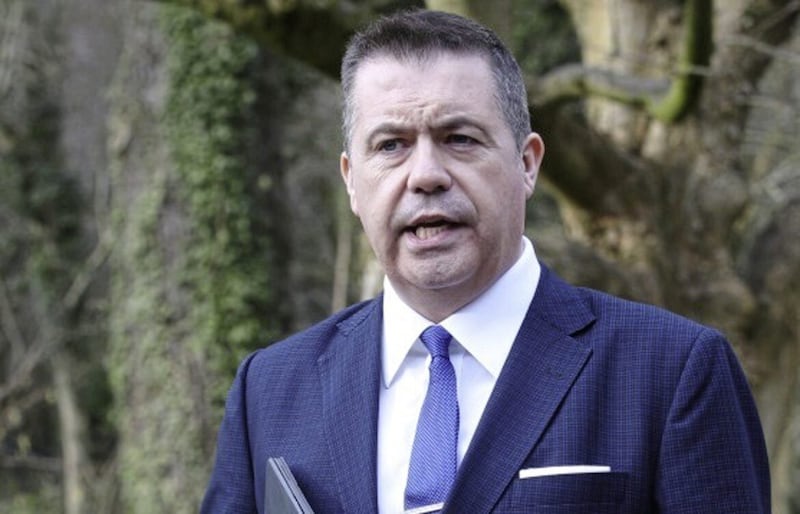
Glyn Roberts chief executive, Retail NI:
“On an initial analysis, this new agreement represents welcome progress towards providing the stability and certainty that our retail, wholesale and supplier members are seeking.
“The technical detail of this agreement will need to be studied further and, following consultation with our membership, we will be able to comment more definitively.
“In the interim, what is blatantly evident, is that the agreement needs to work, not just for all the businesses in our local supply chain, but also for local consumers.
“Ongoing engagement between the business community and the EU and UK Government will be critical as the implementation process of this deal begins.
“It is imperative that the NI Executive and Assembly is now restored to deal with the huge economic challenges that lie ahead. Northern Ireland needs a working Government.”
Neil Johnston, director of the Northern Ireland Retail Consortium:
"It is positive to see both sides have agreed a permanent deal that addresses key issues such as controls on movement of goods, but it is difficult to be more definitive at this stage as the detail is key."
Leslie Orr, Northern Ireland director of ADS (Aerospace, Defence, Security and Space):
“The Windsor Framework is an important step towards resolving complexities and administrative burdens with the Protocol. We look forward to working with members to understand the details of the new Framework and how it helps their ability to trade.
“Northern Ireland is home to a strong aerospace industry, renowned globally for its excellence and the Windsor Framework is a very important step in unlocking sustained economic growth and investment, enabling ADS Northern Ireland Members to do what they do best.”
Ian Talbot, chief executive of Chambers Ireland:
"The announcement today on the Northern Ireland protocol is a significant step forward in regularising and strengthening the economic relationship between the United Kingdom and the EU, while also maximising economic opportunities across the island of Ireland.
“Removing the uncertainty that businesses have face, notwithstanding the Trade and Cooperation agreement signed on 30 December 2020, should facilitate growth by improving business and investor confidence.
"Europe as a whole is facing vastly more significant geopolitical and economic changes than Brexit. We also need to make progress on the actions that are required to meet our climate challenges.
“We urge all politicians to back this compromise so that our respective Governments can focus their attention on those and other critical matters. Business-minded politicians should put their efforts into enabling entrepreneurs trading between the UK and EU, including Northern Ireland and Ireland, to get on with what they do best; doing business."
Director General of the British Irish Chamber of Commerce, John McGrane:
“We welcome today’s deal, and the outline of a framework which indicates what we hope will be the settled solution to the long-running impasse over the Northern Ireland Protocol. We hope that today marks the start of a return of certain, deliberate, predictable and pragmatic relations between the EU and the UK.
“With uncertainty over the Protocol and the governance of Northern Ireland, businesses in Northern Ireland have found themselves unable to avail of the full benefits of the unique trading position that they find themselves in, with unfettered access to sell goods into the EU’s Single Market and the full UK internal market. We hope today marks a new beginning for businesses considering investing in Northern Ireland or establishing joint ventures between Ireland, Northern Ireland and Great Britain. We would encourage all stakeholders to give this framework the consideration it deserves as a pathway to the certainty that all businesses crave.
“We expect that given today’s announcement, the UK government will immediately withdraw the extremely damaging Northern Ireland Protocol Bill from passage through Parliament and urgently listen to the concerns of businesses around the Retained EU Law Bill, which threatens a regulatory nightmare for businesses.
“For its part, we encourage the EU to promptly signal its intent to grant the UK associate member status to Horizon Europe, its multilateral research funding programme, from which it has blocked the UK due to disagreements over the Protocol. Furthermore, the Chamber would like to see all the EU – UK specialised Committees and Working Groups established under the Trade and Cooperation Agreement refocus their efforts to ensure EU – UK trade can fulfil its potential in a post-Brexit context.
“Today marks a long-awaited day, where we see the positive mood of the past few months crystallise into a concrete agreement. What has been announced, including a Red-Lane/Green-Lane approach to goods entering Northern Ireland and augmented powers for Stormont, including a role in pre-legislative scrutiny of EU law, shows a welcome willingness to compromise from both sides, showing a flexibility that we have not seen over recent years. This willingness to compromise is reason for optimism, as are the solutions which have been agreed to, which match the solutions proposed by the Chamber for the duration of this impasse.
Frankie Devlin, tax partner at KPMG:
“It will take time to work through the detail, but we welcome the new agreement, which significantly reduces the burden of moving goods into Northern Ireland from the rest of the UK and also retains the benefits under the Protocol of trading with the EU single market.
“We are hopeful that this will provide the required certainty and stability our businesses need to make investment decisions.
“It should also provide a significant platform to attract new overseas investment into Northern Ireland, due to the benefits of our unique dual access to the UK and EU markets.”
